Seeing change happen before our eyes in Guatemala and Honduras
IFAD Asset Request Portlet
Asset Publisher
Seeing change happen before our eyes in Guatemala and Honduras
Estimated reading time: 5 minutes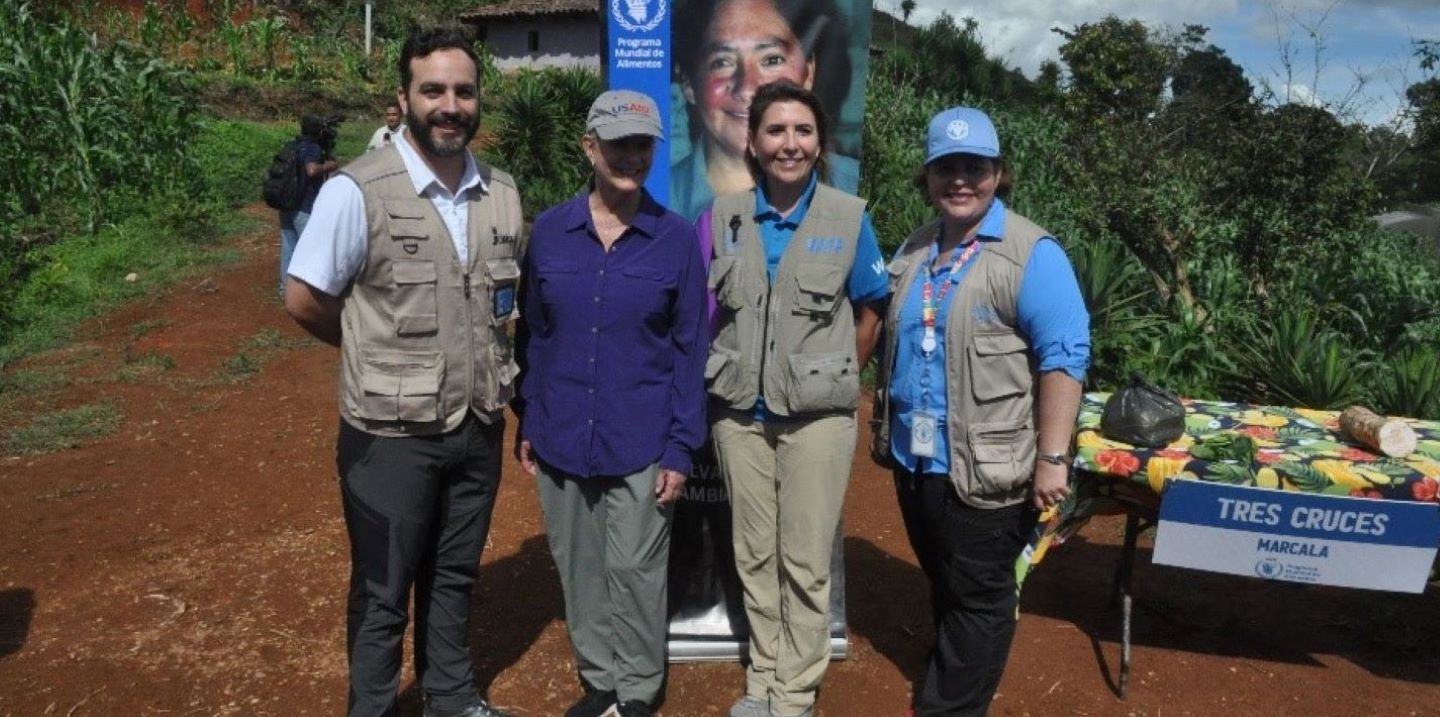
Guatemala and Honduras lie in the heart of the Dry Corridor—a dry strip of land running throughout Central America that is particularly exposed to climate change. As well as economic and geographic ties, the two countries also share challenges—including inequality, malnutrition and violence—prompting many to migrate north to the United States.
But change is unfolding. Rural communities are tackling these challenges, with passion, hope, commitment, as well as international support.
On a recent visit with the US Ambassador to the UN agencies based in Rome, Cindy McCain, I saw the work of fellow Rome-based agencies (FAO and WFP) and presented IFAD’s efforts. Together, we witnessed how Guatemalan and Honduran smallholder farmers are transforming rural communities into places where people can earn a living, grow food, and thrive—with the right support.
School meals—direct from the school gardens
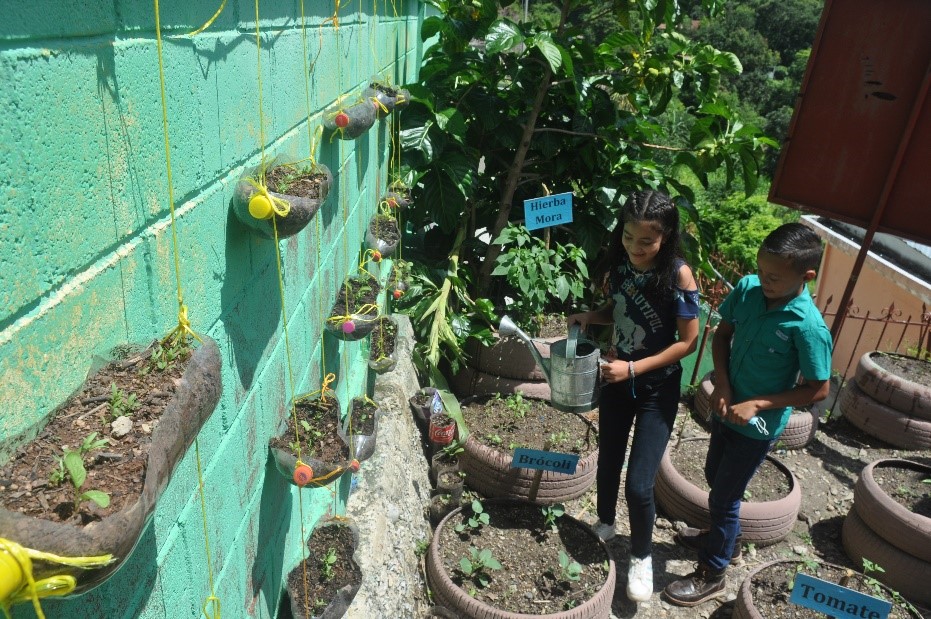
In the hills of southern Guatemala lies the Aldea Veguitas school. It is one of 60 schools taking part in a joint IFAD-FAO-WFP School Feeding Programme, which helped Guatemala’s Government introduce and implement the School Nutrition Law. This law requires schools to buy 50 per cent of the food they provide to pupils from local smallholder farmers.
The effects of this law are visible: 60 school gardens have been created; 800 mothers have been trained in nutrition, health and hygiene; and over 300 small producers are supplying schools with nutritious and safe food.
“Our lives have improved a lot,” explains Gabriel Ramírez Hernández, from the Jocotán Producers’ Network. “Now, we have a sure buyer and a better price”. Santos Encarnación Ávalos, who coordinates the network, agrees. “Before this programme, it was very difficult to sell our products to the schools, because big supermarket chains took it all. Now everything has changed for the better”.
Female-led change
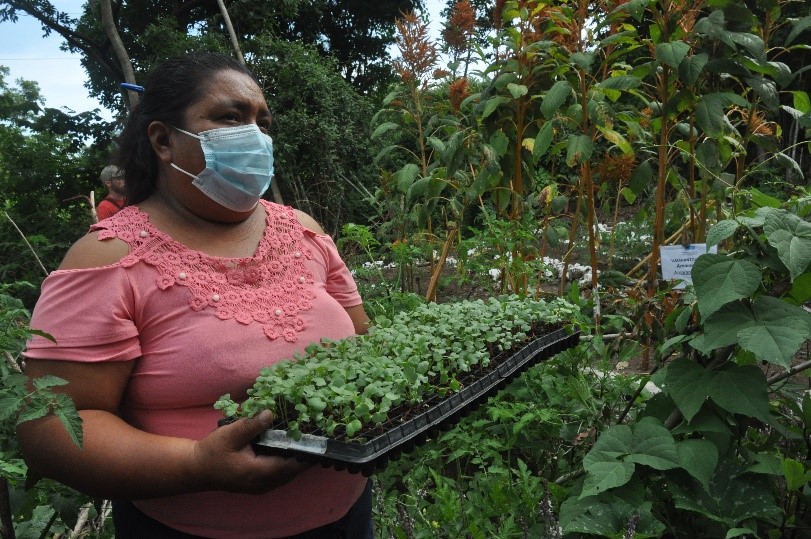
A few kilometres down the road from Aldea Veguitas, Gloria Díez, the leader of the Plan de Jocote community, tells us how, in 2015, a small group of people got together to try to improve the community. “We were 20 people, only three of them men, and many said we were crazy. Now, we are 130 people, 17 of them men, and our work benefits more than 3,000 people.”
With the support of climate-resilient agriculture FAO and WFP programmes, they have achieved impressive results: 12.8 acres of land restored; 159 household gardens created; one large water reservoir and 21 minor rainwater storage structures built; 18 native vegetables species preserved.
What’s next for Gloria and her pioneering team? A processing plant to add value to their agricultural production and further support to expand their activities to nearby communities. They hope that by strengthening their community, their children and grandchildren will thrive at home rather than risking it all to migrate north.
Development to deter migration
Flying to Honduras, we visited a rural community in Belén where, with support from USAID and IFAD, local smallholder farmers set up a 50-kilometre-long irrigation scheme, providing water for 150 families.
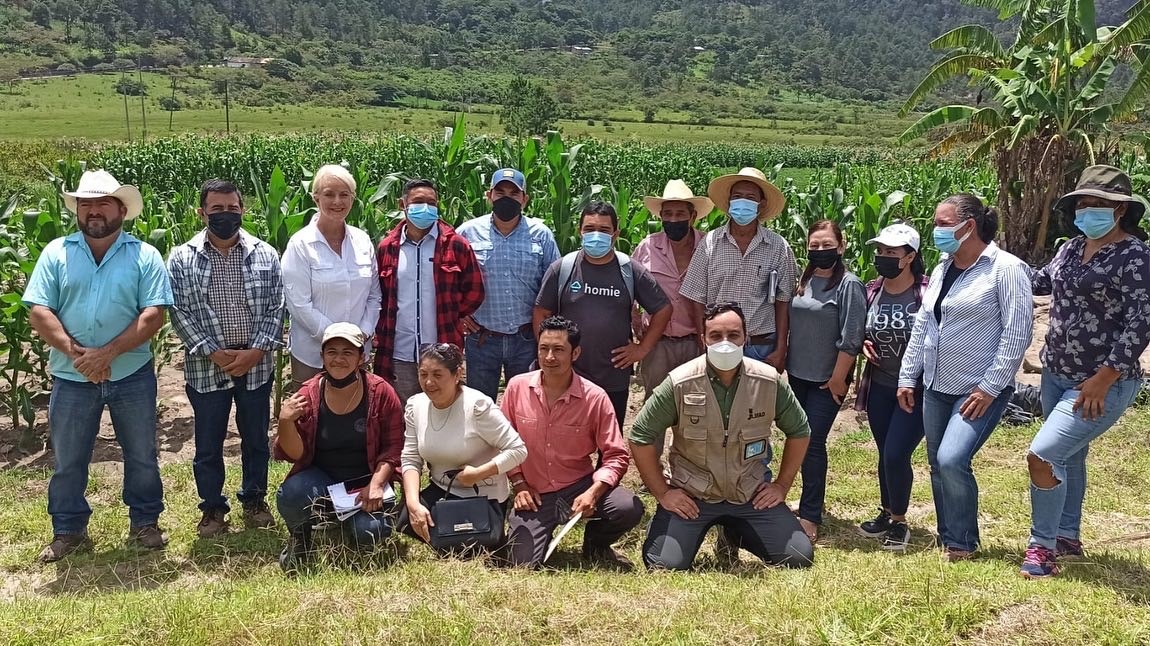
The irrigation system, combined with crop rotation and diversification practices, has quadrupled production, while conserving the environment. “Taking care of the soil and the water source is our main priority,” explains Hernán Congolán, the young irrigation board president.
The development’s impact is far-reaching, going beyond sustainable food production. Young people are not only staying local but, in some cases, they are making their way back home.
After seven years as an illegal migrant in the United States, Osmín Amaya has returned home. “I wouldn’t have left if I had these kinds of opportunities here. When I heard about the irrigation scheme, and having already gathered a small initial capital that would allow me to be part of it, I decided to return.”
Strawberry fields forever
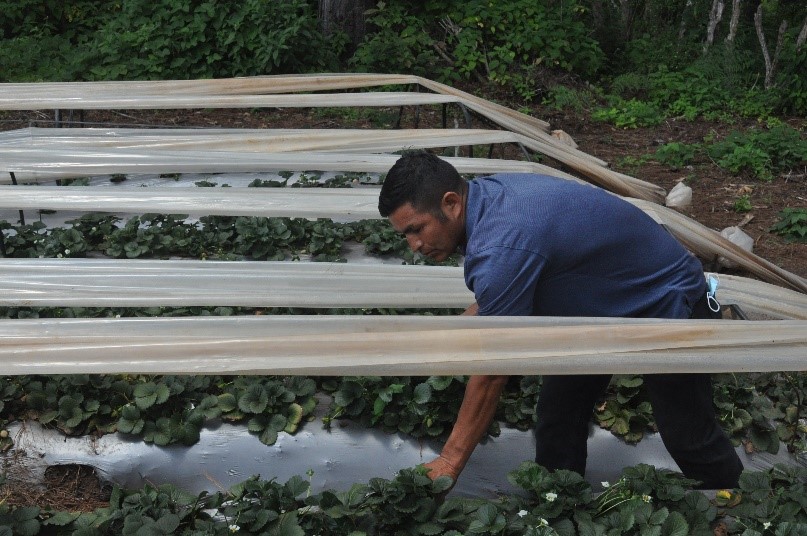
The strawberry fields of Yamaranguila in western Honduras are bursting with lush and fragrant fruit. But just two years ago, this land was destroyed by hurricanes Eta and Iota.
With support from IFAD’s PROLENCA project, members of the APROFESAL producer organization rebuilt their farming infrastructure, including micro tunnels for weather and temperature management, seed diversification and piloting organic production models to reduce their dependence on fertilizer and improve their own natural resource management.
Savouring school
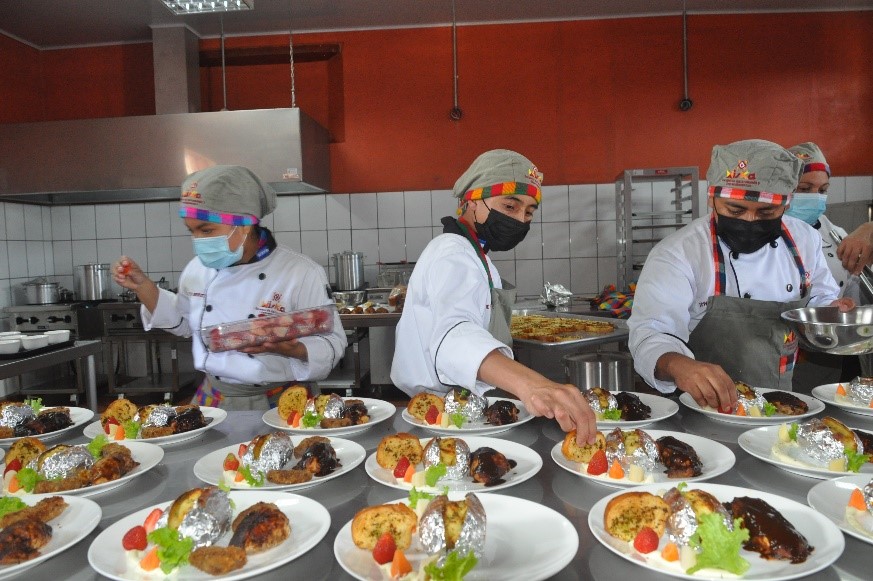
Miska is a school-restaurant hybrid, which was launched as part as the Puentes/Rural For Young People project. Over five and a half months, students are given technical training in gastronomy, with a focus on healthy eating, reinvigorating rural areas, customer service, job creation and entrepreneurship.
The programme is so well regarded that some students find jobs straight away. Many of these students are women, while others are young people who tried to migrate to the United States and were sent back home. Over the next three years, 560 young Hondurans will benefit from this training.
We were lucky enough to taste their cooking—trying delicious dishes like crema de choros (a type of mushroom soup) and chicken with mole sauce—which showcased indigenous products and traditional recipes.
On this trip, I witnessed first-hand how IFAD’s work in strengthening rural communities can have a direct impact on the lives and choices of young rural people. With more opportunities back home, they are less likely to migrate—and avoid the potentially deadly risks that many incur on illegal migration routes to the United States.
I also saw how a focus on building resilience to climate change and improving food security can be a catalyst for long-term sustainability. We must continue this focus without losing sight of equitable and inclusive participation.
Ambassador McCain agrees, saying that “these projects empower people in their communities, allowing them to stay with their children, feed their families and avoid migration. These investments work. We need more of them.”
Explore all our work in Guatemala and Honduras.
Publication date: 17 August 2022
